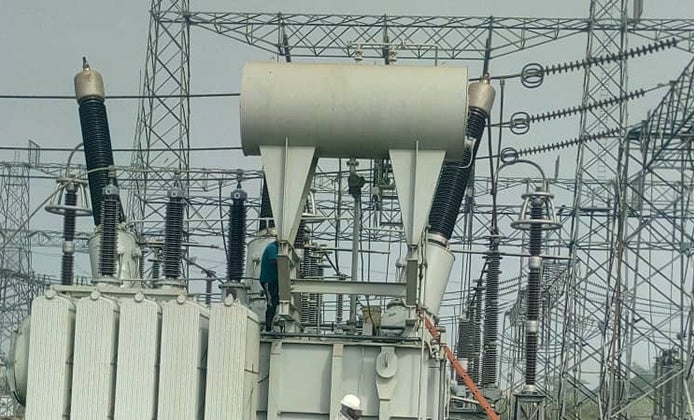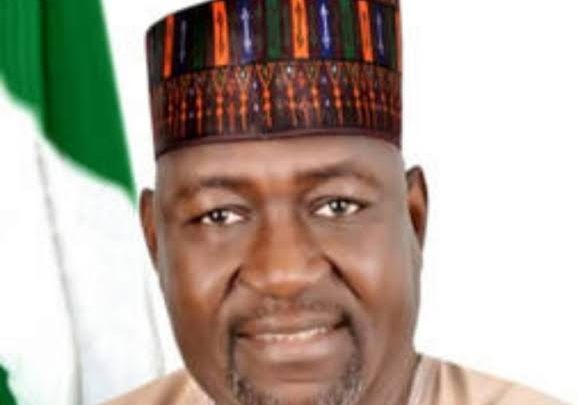The first 50 days: Our reform agenda for the power sector – being a status update report by the Honourable Minister of Power, Engr. Abubakar D. Aliyu, FNSE on Wednesday, 27th October, 2021
It is with great delight that my Team and I engage with you today through this Statement. We hope to do this very frequently to bring Nigerians up to speed on the developments within the Ministry and the Power Sector as a whole.
Since I assumed office in this Ministry, 50 days ago, a lot has transpired in that short period. This reinforces my inaugural assertion and conviction that you do not need to be a magician to Perform.

I do believe that a determined and motivated team will always find a way to mobilize resources and deliver on its assignment. We have put in place goal delivery machinery which is operational.
With this in place, many of our lingering challenges in the power Sector are now being addressed in a Methodical, systematic, and Proactive manner.
We are working tirelessly as we explore opportunities that will, in the short term, deliver the much-desired quick wins whilst still focusing on the long-term objectives of increasing the available Power, improving the quality of services, attracting the much-needed investment, promoting efficiency, competition and growth and lastly ensuring transparency and accountability in the value
chain of the Power Sector.
The Ministry is intensifying performance monitoring of the licensees and the licensing regime, especially their revised Performance Improvement Plans (PIP) to have a better understanding of why some critical stakeholders are performing below expectation.
We shall be taking a careful and detailed look at issues of policy, capacity and the technical requirement, amongst other things.
One very critical concern that we must address in this performance monitoring process is to find out if the terms for granting of licenses were onerous.
Do we need additional laws and or regulations to enable the sector to perform optimally?
These are some of the critical concerns that the performance monitoring will highlight. The outcomes will also hopefully point at ways to address these concerns and challenges.

It is well known the primary policy aim of this administration is to Provide stable, good quality, reliable and affordable electricity for the people of Nigeria for domestic and industrial usage.
The Electric Power Sector Reform Act of March 2005 is quite revolutionary. We are working on its full implementation to match up with the huge sums invested by this administration to realize our objectives in the Sector, which are very much achievable.
Against the backdrop of the reality that the delivery of electric power is a multi-sectoral undertaking, specific areas of conflict and tensions within the power industry value chain are being harmonized for greater synergy which will bring about a wholesome alignment of responsibilities within the governance system of the power sector. It is this new mindset of cooperation for optimal performance that we are bringing on board.
So far, I am happy to inform you that everyone is in alignment with this mentality. There are ongoing conversations within the power value chain. Stakeholders are talking and cooperating with one another and in so doing, bridging the observed disconnect within the sector.
It must be clearly stated that within this value chain, some responsibilities are by virtue of the EPSRA performed by our private sector partners and other agencies of Government. These partners are being more closely monitored and sometimes given the needed nudge in the right direction in order to achieve our objectives.
Hopefully, we will soon begin to experience the imminent turn around in the power sector.
We are determined to deal with some policy issues, the legal and regulatory bottlenecks, and the human factors involved in the implementation and coordination of the power sector’s road map. Though clearly a work in progress, let me assure you that the viability of the sector is not in doubt. As much as it is a capital-intensive sector and currently in need of massive injection of fresh capital, we are making steady progress.

Challenges in the power sector
We are aware that the Nigerian Power sector is confronted by many challenges which have not enabled the sector to grow as desired.
These challenges are reflected in the two over-arching problems of the Sector:
- Service Quality:
Too many people are still not satisfied with the quality of service in terms of hours of supply, voltage,
Disputed/estimated bills, or have no access to electricity; - Sector illiquidity. The payments the DisCos are able to collect from consumers does not cover the full investment and costs of the GenCos who produce and sell the power, and Transmission Company of Nigeria which wheels the power to the DisCos. Federal Government financial support is required to cover the shortfall. The resulting huge burden on Government is unsustainable.
Our focus
My immediate focus is how to achieve the following through effective policy and regulation and cooperative engagement with private and public sector operators:
- Create liquidity in the electricity market;
- Improve services in terms of hours of supply, billing transparency and accuracy, and wider access to electricity;
- Bring consumer, operator and investor confidence back to the sector to attract foreign and local investment into the sector;
- Create jobs;
- Promote competition and bring in more participants in the Nigerian Electricity Market (NEM).
The key policies and initiatives of the Ministry to achieve these aims are: –
- Accelerate progress and completion of key projects of the Ministry and its partners, especially:
a. Kashimbilla 40MW power station has already started generating power into the National Grid.
b. Gurara phase 2 being developed in partnership with Ministry of Water Resources will soon be ready to deliver 30MW to the grid.
c. Zungeru Hydroelectric Power Project is progressing towards completion next year to deliver another 700MW of renewable power.
d. Katsina Wind farm is with a full capacity of 10MW is already generating part of its full capacity on the grid.
e. Dadin Kowa 40MW power station started generating power into the National Grid under a concession with the private investor. The remaining regulatory and power purchase
agreement issues are being resolved.
f. Mambilla Hydroelectric Power Project was contracted in 2017. Discussions are being intensified so that all encumbrances preventing full take off of the project are resolved soon.
g. TCN’s Transmission Rehabilitation and Expansion Program funded by various multilateral financial institutions to ensure adequacy and stability of the National Grid. - Systematic implementation of the Presidential Power
Initiative (PPI) of this administration. Siemens Nigeria and the Federal Government in 2020 entered into a Power
Infrastructure revamp agreement. It is a government-to-
government agreement. The Nigerian Electrification Roadmap (NER) is a partnership that will expand Nigeria’s electricity capacity from the current average output 4,500MWh/h to 25,000MW. We are confident that the NER will succeed because of the pedigree of Siemens and their footprint in the Global Power Industry.
The first phase of the PPI is the upgrading and expansion of the vital infrastructure of the TCN and Discos with the end goal of achieving 7,000MW. This first phase started in earnest this year, with the ongoing pre-engineering phase. The selected EPC Contractors will soon be contracted officially so work on the project implementation can commence.
- Reinvigorating important policies and regulations, especially: –
a. the Eligible Customer and related regulations that move the electricity industry from the present interim commercial structure to full commercial structure in compliance with Clauses 25 and 26 of the Act, whereby consumers contract for better services directly with willing GenCos and service providers that are ready to make new investment to deliver better services;
b. Meter Asset Provider program to attract investors into metering;
c. Mini-grid policy and regulation that allows underserved consumers to partner with investors and contractors to get better services. The Ministry of Works and Housing, for example, has started a pilot of 1.5MW of Solar. - Optimizing the available generation capacity and putting them to good use. This means that we shall ensure that the unutilized capacity is used in line with the Ministry’s incremental power focus and the Eligible Customer policy;
- Strengthening the regulator to ensure that all sector players and stakeholders work according to the rules and guidelines especially in dealing with customers.
CONCLUSION
Reforms take time and require patience to implement, especially in a highly regulated sector like the power sector. I am confident that these reforms, when fully implemented, will bring about the transformational change that we all desire to see in the sector. We are very mindful of the various challenges and bottlenecks. I plan to face the challenges with a dogged determination and resolve. It is my belief that with the right focus, determination and teamwork, the power sector will experience a new lease of life. This further serves to assure you that Nigeria is finally navigating towards resolving some of the seemingly intractable challenges of electricity and power supply in our country.
We are at the threshold of a new era of greater liberalization in the power sector as we gradually achieve results based on all the plans for quick wins and the long-term growth of the Sector.
I am convinced that everything we need for the power sector to succeed is available to us. We must ensure that all stakeholders work together as a family to improve the lot of the power sector.
Thank you, gentlemen, of the press.
Abubakar D. Aliyu, FNSE
Honourable Minister of Power






